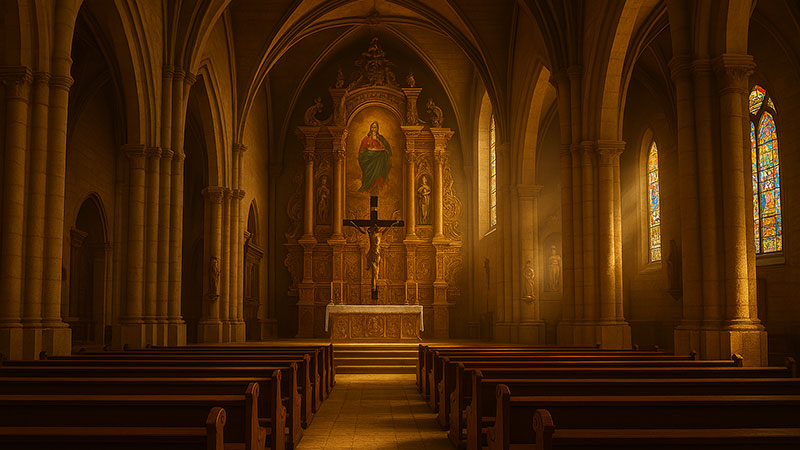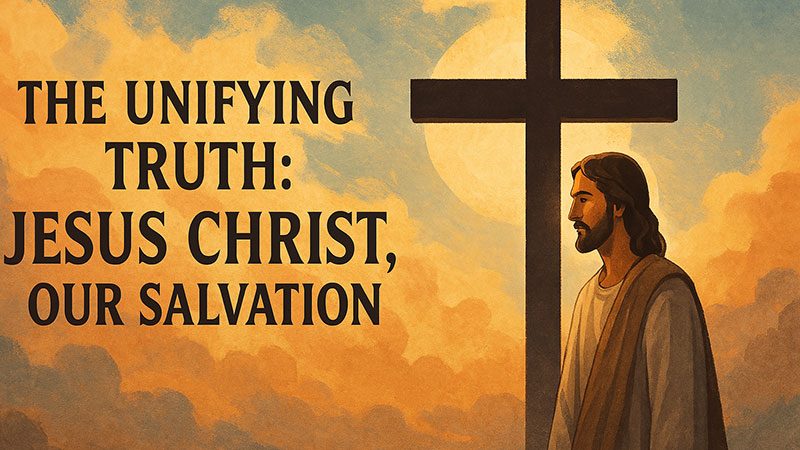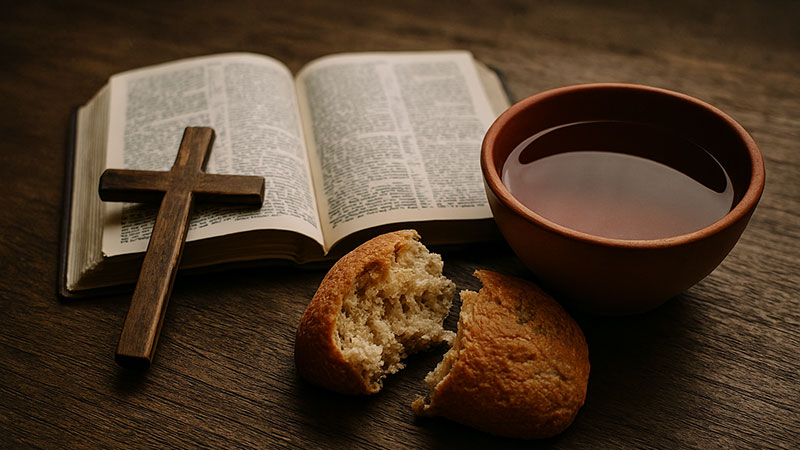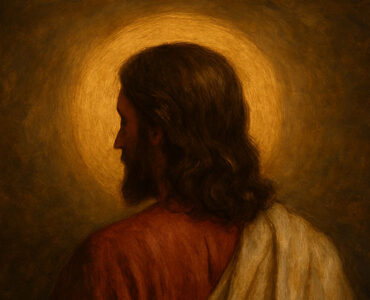Fasting is the voluntary abstinence from some or all kinds of food or drink for a set time. It is a spiritual discipline deeply rooted in many religions, including Christianity. While the goal remains the same, to draw closer to God, Christians fast in different ways depending on their denomination.
From ancient customs to modern-day practices, these differences reveal the rich diversity of Christian faith. In this article, we will explore how Protestant, Orthodox, and Catholic believers each approach fasting. You’ll gain a clear and simple understanding of why and how these groups take part in this spiritual journey.
As you learn about these practices, we invite you to discover the core message of Christianity. You can explore God’s plan for salvation through helpful resources on the Peidayesh website.
Read More: Worship in Christianity: Comparing the Practices of Sects
Why Do Christians Fast?
Before we examine the specific practices, let’s understand the universal reasons behind Christian fasting. The Bible presents several compelling motivations for this discipline:
Drawing Closer to God
Many believers see fasting as a way to shift their focus from worldly desires to spiritual matters. When they deny their bodies, they humble themselves before God and sharpen their spiritual senses.
Psalm 35:13 says, “But as for me, when they were sick, I put on sackcloth; I humbled my soul with fasting…” It’s a way to demonstrate our dependence on God, not on food or other comforts.
Repentance and Humiliation
Throughout the Old and New Testaments, fasting is associated with repentance for sin and humbling oneself before God. When the people of Nineveh repented after Jonah’s warning, they fasted (Jonah 3:5).
Similarly, Ezra proclaimed a fast for his people to humble themselves before God (Ezra 8:21). It’s an outward expression of an inward sorrow for sin and a desire for God’s forgiveness.
Seeking God’s Guidance and Intervention
In times of crucial decision-making or urgent need, believers often combine prayer with fasting to seek God’s will or intervention. The apostles fasted and prayed before sending out missionaries (Acts 13:2-3).
Jesus himself fasted for forty days and nights before beginning his public ministry (Matthew 4:2). This discipline helps to clear mental clutter and focus intently on God’s voice.
Spiritual Warfare
Fasting can also be a tool in spiritual warfare, strengthening a believer’s resolve against evil. Jesus indicated that some types of spiritual strongholds might only be overcome through prayer and fasting (Matthew 17:21). It’s a recognition that true strength comes from God, not from human effort alone.

Fasting in Catholicism
The Catholic Church has a long and detailed tradition of fasting, deeply rooted in its history and theological understanding of penance and sacrifice.
Historical Practices and Evolution
Historically, Catholic fasting was quite rigorous, often involving complete abstinence from food for extended periods or strict dietary restrictions. Over time, particularly after the Second Vatican Council (1962–1965), Church leaders relaxed the specific rules for the general faithful, though the spirit of the discipline remains.
Days of Fasting and Abstinence
- Ash Wednesday and Good Friday: These are mandatory days of fasting (eating only one full meal, with two smaller meals that do not equal the full meal) and abstinence (no meat). This is observed by Catholics from age 18 to 59 for fasting, and from age 14 onwards for abstinence.
- Lent: While not strictly fasting every day, Catholics are encouraged to engage in abstinence from meat on all Fridays during Lent. Some individuals may choose to fast more rigorously during Lent, forgoing specific foods or meals as a personal sacrifice.
- Other Ember Days and Vigils: Historically, certain Ember Days (four times a year) and vigil days before major feast days also involved fasting, though these are now generally optional or observed by more devout individuals.
Purpose and Theological Basis
For Catholics, fasting is primarily a penitential practice, a way to repent for sins and participate in Christ’s suffering. It’s also seen as a means of spiritual discipline, helping to curb sinful desires and cultivate virtue. The Church emphasizes that fasting should be accompanied by prayer and almsgiving (charitable giving), echoing Isaiah 58:6-7, which speaks of a fast that breaks chains of injustice and shares food with the hungry.
The Eucharist (Holy Communion) is central to Catholic life, and traditional practice includes fasting for at least one hour before receiving Communion, out of reverence for the Body and Blood of Christ.
Read More: Is Inter-Faith Marriage Permitted by the Bible?
Fasting in Eastern Orthodoxy
Eastern Orthodoxy maintains one of the most rigorous and extensive fasting traditions in Christianity, deeply integrated into its liturgical calendar and spiritual life.
Extensive Fasting Periods
Orthodox Christians observe a significant number of fasting days throughout the year, far more than most other Christian traditions.
Major Fasting Seasons
- Great Lent: This is the longest and most significant fasting period, lasting 40 days before Pascha (Easter). During Great Lent, strict fasting typically involves abstaining from meat, dairy products, eggs, fish (fish with backbones, shellfish are often permitted), olive oil, and wine. On certain days, only raw food might be consumed, or a total fast for short periods.
- Apostles’ Fast: This fast varies in length, beginning after All Saints’ Sunday (the Sunday after Pentecost) and ending on the Feast of Saints Peter and Paul (June 29).
- Dormition Fast: A two-week fast from August 1 to August 14, leading up to the Feast of the Dormition of the Theotokos (Assumption of Mary).
- Nativity Fast (Advent Fast): A 40-day fast leading up to Christmas, from November 15 to December 24.
Weekly Fasting
- Wednesdays and Fridays: Most Orthodox Christians observe a weekly fast on Wednesdays (in remembrance of Christ’s betrayal) and Fridays (in remembrance of His crucifixion). This typically involves abstaining from meat, dairy, eggs, olive oil, and wine.
Purpose and Theological Basis
Orthodox Christians view fasting as an ascetic struggle (askesis) that helps them resist the passions and pursue spiritual purification. They do not treat it as a punishment, but rather embrace it as a joyful effort to receive the Holy Spirit and grow in theosis, becoming more like God.
By bringing the body under the control of the spirit, believers create space for deeper prayer and a stronger awareness of God’s presence. Fasting works in harmony with prayer, confession, and almsgiving to form a complete spiritual discipline.
The rigorous nature of Orthodox fasting reflects a profound commitment to self-denial and spiritual growth, echoing Christ’s words in Matthew 16:24: “Whoever wants to be My disciple must deny themselves and take up their cross and follow Me.”
Fasting in Protestantism: Diverse and Individualized Approaches
Unlike Catholicism and Orthodoxy, Protestantism does not have a unified, prescribed system of fasting. Practices vary widely, ranging from denominations that rarely emphasize communal fasting to those that encourage it regularly.
Emphasis on Individual Conscience
The Protestant Reformation brought an emphasis on sola scriptura (scripture alone) and the individual’s direct relationship with God. Consequently, many Protestant denominations view fasting as a personal, voluntary discipline rather than a mandated church requirement.
Varying Practices Across Denominations
- Some denominations (e.g., Baptists, non-denominational churches): Fasting is largely left to individual believers. There might be occasional calls for congregational fasts for specific prayer needs (e.g., for revival, a missions trip, or in times of crisis), but no fixed calendar of fasting.
- Methodists: While John Wesley, the founder of Methodism, strongly advocated for regular fasting (often weekly on Fridays), this practice is less commonly observed today in the broader Methodist church, though some individuals and groups maintain it.
- Pentecostal/Charismatic churches: Fasting is often emphasized as a powerful tool for spiritual breakthrough, empowering prayer, and seeking God’s anointing. Many leaders and members regularly engage in partial fasts (e.g., Daniel fast, abstaining from certain foods) or complete fasts for specific periods.

Purpose and Theological Basis
For Protestants, the purpose of fasting aligns closely with the biblical motivations: to humble oneself before God, seek His guidance, intensify prayer, and overcome spiritual strongholds. The focus is less on penance (as in Catholicism) or asceticism (as in Orthodoxy) and more on drawing closer to God through intentional self-denial.
The emphasis is on the heart’s attitude rather than strict adherence to rules. Matthew 6:16-18, where Jesus advises against outward show in fasting, is a key passage:
“When you fast, do not look somber as the hypocrites do… But when you fast, put oil on your head and wash your face, so that it will not be obvious to others that you are fasting, but only to your unseen Father; and your Father, who sees what is done in secret, will reward you.”
Read More: What the Lord’s Supper Means for Believers
The Unifying Truth: Jesus Christ, Our Salvation
Despite the diverse expressions of fasting across Christian denominations, one profound truth unites all who genuinely follow Christ: Jesus Christ, the Son of God, is the only way to our salvation. His perfect life, sacrificial death on the cross, and victorious resurrection are the foundation of our faith. He bore the penalty for our sins, offering forgiveness and eternal life to all who believe in Him.
As John 3:16 famously states, “For God so loved the world that He gave His one and only Son, that whoever believes in Him shall not perish but have eternal life.”
Our spiritual disciplines, including fasting, do not earn our salvation; rather, they are responses of love and obedience to the God who has already provided salvation through His Son. They are tools to help us grow in our relationship with Him and become more like Him.
Conclusion: A Rich Tapestry of Faith
Fasting takes many forms across Protestant, Orthodox, and Catholic traditions. These varied practices show how Christians seek to honor God and grow closer to Him. Some follow ancient and structured routines. Others choose more personal and spontaneous acts of self-denial. But in every case, the goal is the same: to draw nearer to the Divine.
Understanding these differences helps us appreciate the richness of Christian life. Though the methods vary, the aim remains a deeper walk with God. We invite you to explore these spiritual disciplines further. More importantly, consider the heart of Christianity, the incredible love of God.
Through the Peidayesh website, you can learn how to know the living God and receive the gift of salvation through faith in Jesus Christ. May your journey of faith grow richer and lead you into deeper fellowship with Him.
FAQ
To draw closer to God and strengthen their spiritual relationship with Him
The Eastern Orthodox Church
Because they emphasize an individual’s direct relationship with God, making fasting a personal and voluntary discipline.









Add comment